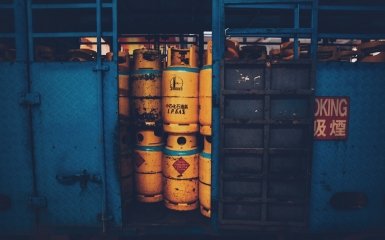Although the full-scale Russian-Ukrainian war has been going on for almost two years, the European Union continues to import Russian liquefied gas. It pays the aggressor country vast sums of money for it.
The EU imports half of Russian liquefied gas
Representatives of the Centre for Research on Energy and Clean Air (CREA) and the Business4Ukraine coalition, who published a special report, pay attention to this.
Analysts emphasize that official Brussels has not introduced any sanctions on LNG imports.
That is why the European Union remains the destination for 50 per cent of Russian LNG exports and pays the aggressor country more than one billion dollars monthly.
Russia has seen a surge in LNG export revenues, particularly as its LNG remains free of EU sanctions. From December 2022 to October 2023, half of Russian LNG exports totaling EUR 8.3 billion were directed to the EU market, the report says.
The expert discovered that Russian LNG imports up to a dozen EU members.
It is essential to understand that Belgium, Spain and France buy the most significant volumes. Together, they account for 88 per cent of Russian imports.
In addition, it is emphasized that the volume of LNG imported from the aggressor country is so prominent today that it even managed to leave behind other Russian fossil fuels.
The contribution of the EU to the enrichment of the Russian Federation is much more significant than previously thought.
It is also impossible to ignore that companies from the EU are still involved in operating the Novatek LNG tanker fleet.
In addition, it is noted that Norwegian Insurance Company Assuranceforeningen Skuld provides protection and indemnity insurance for three LNG tankers transporting LNG between the Arctic and European markets.
EU member states should immediately ban the transshipment of Russian LNG in their ports, which is on its way to destinations outside the EU. Russia depends on these ports for the logistics and storage of LNG that goes to non-EU countries, the authors of the report emphasize.
More on the topic
- Category
- Economics
- Publication date
- Додати до обраного


